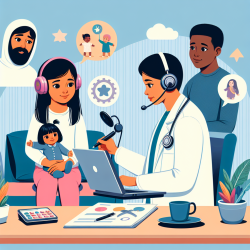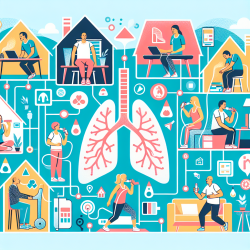Introduction
The field of speech-language pathology is intricately connected to broader systemic issues, including nutrition and food security. The research article, "A research vision for food systems in the 2020s: Defying the status quo," presents a compelling case for transforming food systems to improve global health outcomes. This transformation is not only vital for addressing malnutrition but also for enhancing the developmental outcomes of children, a key focus for speech-language pathologists.
The Interconnection of Food Systems and Child Development
According to the research, food systems are facing unprecedented challenges that require immediate and innovative solutions. The prevalence of malnutrition, which affects millions of children worldwide, directly impacts their cognitive and language development. For speech-language pathologists, understanding these systemic issues is crucial for providing comprehensive care.
Data indicates that malnutrition can lead to delayed speech and language development, cognitive impairments, and other developmental delays. Therefore, addressing food security and nutrition is not just a global health issue but a critical factor in child development. By integrating knowledge from food systems research, speech-language pathologists can better advocate for and support children who are at risk of developmental delays due to nutritional deficiencies.
Implementing Research Outcomes in Practice
The research emphasizes the need for high-quality science to be translated into policy and action at all levels. For practitioners in speech-language pathology, this means advocating for policies that ensure food security and nutrition are prioritized in educational and healthcare settings.
Here are some actionable steps practitioners can take:
- Collaborate with Nutritionists: Work alongside nutritionists to develop comprehensive care plans that address both speech-language needs and nutritional requirements.
- Advocate for Policy Change: Use data-driven evidence to advocate for policies that support food security and nutrition in schools and communities.
- Educate Families: Provide families with resources and education on the importance of nutrition for language development and overall health.
Encouraging Further Research
While the research provides a robust framework for addressing food systems challenges, it also highlights the need for continued investigation into the specific impacts of nutrition on speech and language development. Speech-language pathologists can contribute to this body of knowledge by conducting research that explores these connections further.
Potential research areas include:
- The impact of specific nutritional deficiencies on speech and language development.
- The effectiveness of integrated care models that combine nutritional support with speech-language therapy.
- Longitudinal studies tracking the outcomes of children receiving both nutritional and speech-language interventions.
Conclusion
The transformation of food systems is a multifaceted challenge that requires collaboration across disciplines. For speech-language pathologists, integrating insights from food systems research into practice can lead to better outcomes for children. By advocating for and implementing policies that address nutrition and food security, practitioners can play a pivotal role in shaping a healthier future for the next generation.
To read the original research paper, please follow this link: A research vision for food systems in the 2020s: Defying the status quo.










